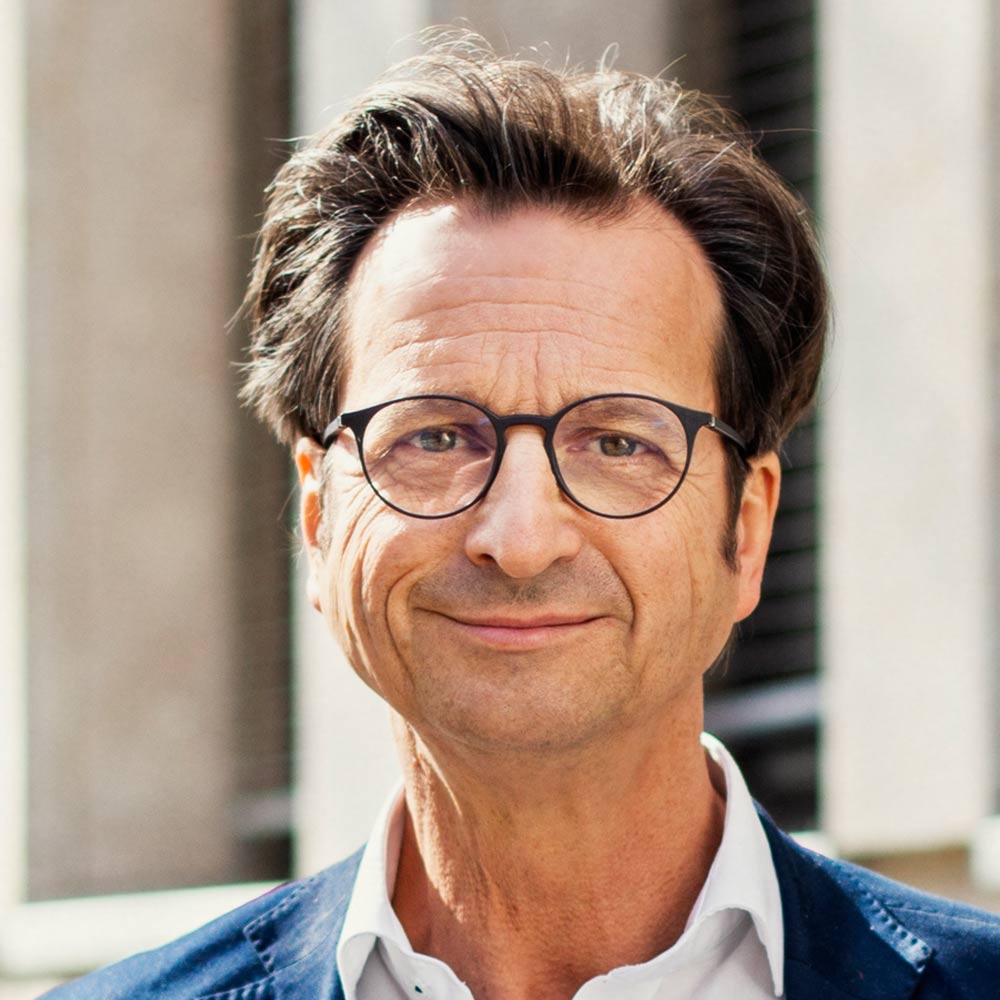Die krisengeprägte „Generation Z“ (GenZ) wünscht sich soziale und wirtschaftliche Stabilität. Viele junge Menschen fühlen sich angesichts der aktuellen Herausforderungen oft verloren, orientierungs- und hilflos. Das ist ein zentrales Ergebnis der rheingold Studie „GenZ 2024 – Generation Überdruck“ im Auftrag des Verbandes der Chemischen Industrie (VCI).
Ständige Unsicherheit durch multiple Krisen
Die GenZ steht für die Altersgruppe der 16- bis 24-Jährigen, die von einer anhaltenden Krisenerfahrung geprägt sind. Seit der Corona-Pandemie sind sie durch den Krieg in der Ukraine, die Energie- und Inflationskrise sowie die andauernde Wirtschaftskrise einer ständigen Unsicherheit ausgesetzt. Zu den zentralen Sorgen der jungen Generation gehören die unsichere Altersvorsorge, hohe Mieten, gesellschaftliche Polarisierung, Migration, die Krise im Bildungssystem und eine marode Infrastruktur. Der Klimawandel bleibt zwar ein wichtiges Thema, rückt jedoch für viele in den Hintergrund.
„GenZ 2024“ sorgt sich wegen der Polarisierung der Gesellschaft
79 Prozent der jungen Menschen sind über die soziale und wirtschaftliche Entwicklung besorgt, 71 Prozent über die Polarisierung innerhalb der Gesellschaft. Ebenso viele Jugendliche wünschen sich, Teil einer Gemeinschaft zu sein, ohne andere auszuschließen.
Verschärft wird die anhaltende Krisenwahrnehmung der jungen Menschen durch einen immer aggressiveren Ton im politischen und gesellschaftlichen Diskurs, der auch zu einem erodierenden Gemeinschaftsgefühl innerhalb der Jugendgeneration führt. Immer wieder beklagen junge Menschen, dass ihre Welt in unversöhnliche Bubbles zerfällt. Groß ist ihre Angst, sich vor allen in den sozialen Netzwerken angreifbar zu machen, gecancelt, geghostet oder als ganzer Mensch verurteilt zu werden, wenn sie offen ihre Meinung äußern.
Aufspaltung der Lebenswelten und Verdrängung
Obwohl die Jugendlichen diese Blasenbildung bedauern, betreiben sie die Flucht in eine „absichernde Selbstbezüglichkeit“ sehr bewusst. Im engen Kreis guter Freunde und in der eigenen Privatheit fühlen sie sich am wohlsten. Ähnlich wie die Erwachsenen spalten sie die Welt auf in eine private Eigenwelt, die noch überschaubar und sicher ist, und eine bedrohliche Außenwelt, in der schier unlösbare, nicht zu bezwingende Dauerkrisen herrschen. Zwischen dem eigenen Schneckenhaus und der äußeren Bedrohungswelt wird ein Verdrängungsvorhang aufgespannt. So sagen 70 Prozent der Befragten: Ich kümmere mich stärker um mich, meine Familie, enge Freunde oder mein Zuhause. O-Ton aus einem der Tiefeninterviews: „Mit den negativen Themen will ich mich nicht ständig belasten.“
„GenZ 2024“ ist im Ausdruck gehemmt und setzt die Tarnkappe auf
In diesem Klima der unversöhnlichen Bubbles wagt es die Generation Z kaum noch, sich offen, konfrontativ und fordernd zu zeigen. Außerhalb der Sicherheit der eigenen Bubble entwickelt sie eine Tarnkappen-Strategie. Sie versteckt ihre Haltung, um keine Angriffsfläche zu bieten. Was früher ein natürlicher Ausdruck jugendlicher Selbstentfaltung war – das laute Einfordern von Veränderung und das freie Aussprechen ihrer Wünsche – ist heute spürbar gehemmt und staut sich im Innern auf.
Psychosomatische Symptome durch gestaute Ausdrucksbildung
Die gestaute Ausdrucksbildung artikuliert sich in einer Vielzahl von psychosomatischen Symptomen. Auffällig viele Jugendliche klagen über Schlafstörungen, Müdigkeit, Depressionen, Anspannung, Unruhe und Angstzustände. Auf gesellschaftlicher Ebene manifestiert sich die gestaute Ausdrucksbildung in einer zunehmenden Komplexitäts- und Kompromiss-Müdigkeit, die zu einer wachsenden Demokratie-Müdigkeit führen kann.
Wunsch nach Normalität und radikalen Maßnahmen zur Problemlösung
Um sich aus diesem Stau herauszubewegen, entwickeln die Jugendlichen unbewusste Erlösungs-Hoffnungen: den Wunsch nach einer Wohlfühl-Normalität, in der möglichst die Spielräume, die Sorglosigkeit, die Harmonie und die Freiheiten der Vorkrisenzeit wiederhergestellt und Zukunftspläne wieder realisierbar werden sollen. Auf der anderen Seite entwickeln sie das Bedürfnis nach radikalen Maßnahmen, um die allgegenwärtigen Probleme zu lösen.
„GenZ 2024“ hadern mit der Komplexität für Politik
Die jungen Menschen hadern mit der Komplexität von Politik und der scheinbar endlosen Suche nach Kompromissen. Ein schneller Erfolg als Ergebnis ihrer Wahlentscheidungen bleibt für die GenZ oft aus, was ihr Gefühl der Orientierungslosigkeit verstärkt. Politisch neigt sie entweder zu eher konservativen Parteien oder zu Parteien, die einfache, durchgreifende Lösungen für Probleme versprechen, die ihrer Ansicht nach von der Politik vernachlässigt werden.
Politik sollte konstruktives Miteinander leben
Die Politik kann den Jugendlichen – jenseits populistischer Verkürzungen und Scheinlösungen – Wege aus der gestauten Ausdrucksbildung eröffnen. Die Sehnsucht junger Menschen nach authentischer Führung ist groß. Eine Führung, die nicht autoritär agiert, aber glaubwürdig und fokussiert die Kernthemen voranbringt. Groß ist auch die Sehnsucht nach konstruktivem Miteinander und richtunggebender Geschlossenheit. Die Bereitschaft ist da, an sinnvollen und greifbaren Zukunftsprojekten aktiv mitzuwirken, und so nicht nur Selbstwirksamkeit, sondern auch das Aufgehoben sein in einer übergreifenden Gemeinschaft zu erleben.
Einzelergebnisse der Studie im Überblick
- 87 % der Befragten finden, dass Migration kein Problem ist, wenn die Menschen hier arbeiten, Steuern zahlen und sich an Regeln und Gesetze halten.
- 81 % meinen, dass das Bildungssystem derzeit am meisten von der Politik vernachlässigt wird, gefolgt von 80 %, die finden, die Aggressivität und Polarisierung der Gesellschaft werde am meisten vernachlässigt.
- 64 % meinen, dass der Klimawandel/der Umweltschutz am stärksten vernachlässigt wird.
- 79 % sind besorgt über die soziale und wirtschaftliche Entwicklung in Deutschland.
- 71 % sorgen sich über die Polarisierung in der Gesellschaft.
- 71 % möchten Teil einer Gemeinschaft sein, ohne dabei andere auszuschließen oder gegen andere Gemeinschaften zu sein.
- 71 % sagen, dass eine Krise nach der anderen kommt (Corona, Ukraine-Krieg, Inflation, Klima) und dass sie das belastet.
- 70 % beklagen, dass die Welt kompliziert und unübersichtlich geworden ist und sie sich deshalb nach einer einfacheren Zeit sehnen.
- 68 % sagen, dass Deutschland marode ist und vieles hier nicht mehr funktioniert.
- 67 % sorgen sich, dass Deutschland seinen wirtschaftlichen Wohlstand verliert.
- 81 % halten die chemisch-pharmazeutische Industrie für grundlegend wichtig für Deutschland.
- 79 % finden, dass die chemisch-pharmazeutische Industrie gute Arbeitsplätze und Wirtschaftskraft am Standort Deutschland sichert.
- 77 % meinen, dass die Branche lebensnotwendig für einen funktionierenden Alltag ist.
- 72 % sagen, dass die chemisch-pharmazeutische Industrie das Leben angenehm, bequemer und sicher macht.
Die komplette Studie, die neben der Lebenswahrnehmung der GenZ und ihrer Sicht der Chemie- und Pharmabranche auch ihr politisches Denken untersucht, ist auf der VCI-Internetseite herunterladbar (Link zur Studie).
Im Gegensatz zu ihrer allgemeinen Krisenwahrnehmung sehen junge Menschen die chemisch-pharmazeutische Industrie in einem positiven Licht, sobald sie sich intensiver mit ihr beschäftigen. Sie wird als Hoffnungsträger und mit ihren Produkten als unverzichtbarer Teil des Alltags wahrgenommen. Die GenZ erkennt die Bedeutung der Branche für den Industriestandort. Besonders überzeugt sie, dass Chemie- und Pharmaunternehmen konkrete Lösungen für drängende Probleme haben und Jobs anbieten, bei denen junge Menschen sich konstruktiv einbringen können.
„Genz 2024“ vertraut der Wirtschaft
Stephan Grünewald, Gründer und Managing Partner des rheingold Instituts, betont: „Angesicht der unproduktiven Zerstrittenheit der Regierung trauen junge Menschen der Wirtschaft mehr Problemlösungskompetenz und eine richtunggebende Geschlossenheit zu. Die chemisch-pharmazeutische Industrie kann daher die Sehnsüchte junger Menschen nach sinnstiftendem Fortschritt und einem sicheren Arbeitsplatz in einer starken solidarischen Gemeinschaft aufgreifen und sich bei jungen Menschen als wichtiger Grundpfeiler einer insgesamt guten Zukunft positionieren.“
VCI-Hauptgeschäftsführer Wolfgang Große Entrup sagt: „Dass sich die GenZ so große Sorgen um die soziale und wirtschaftliche Lage macht, bestärkt uns darin, für bessere Standortbedingungen zu kämpfen und den Reformstau in Deutschland aufzulösen. Für uns ist das ein sehr positives Signal, dass junge Menschen den großen Beitrag erkennen, den unsere Branche bei der Lösung von Zukunftsproblemen leistet, und wir als Arbeitgeber für sie attraktiv sind.“
Methodik der Studie
Die Studie untersucht die Lebenswirklichkeit der GenZ, also der 16- bis 24-Jährigen in Deutschland, ihr Wahlverhalten sowie die Wahrnehmung der chemisch-pharmazeutischen Industrie durch diese Zielgruppe. Sie kombiniert dazu qualitative und quantitative Analysen, wobei die qualitative-tiefenpsychologische Grundlagenstudie im Zentrum der Untersuchung steht.
Qualitative zweistündige Tiefeninterviews
Für den qualitativen Teil wurden 64 Probandinnen und Probanden online im Video-Interview befragt. Diese Art der Durchführung sorgt für besonders unverstellte Ergebnisse, da
die Teilnehmenden sich während des Gesprächs in ihrer heimischen Komfortzone befinden.
Das potenziell hemmende Umfeld eines offiziellen Teststudios wird vermieden. Durch wegfallende Anfahrtswege und zeitliche Flexibilität sind Remote-Erhebungen zudem besonders
niedrigschwellig. So lässt sich leichter eine repräsentative Gesamtheit erreichen.
Befragt wurden ebenso viele Frauen wie Männer in der relevantem Altersspanne von 16 bis
24 Jahren. Jeweils 16 Teilnehmende kamen aus dem Norden, Osten, Süden und Westen
Deutschlands.
Quantitative repräsentative Befragung zur Validierung
In einem zweiten Schritt hat das rheingold Institut in einer quantitativen Online-Umfrage
bestimmt, wie stark die relevantesten Ergebnisse aus den tiefenpsychologischen Interviews
ausgeprägt sind. Diese doppelte Validierung erzeugt Sicherheit und ermöglicht weitergehende
Erkenntnisse.
Für die „Quantifizierung” wurden vom 13. bis zum 27. August 2024 insgesamt 1.233 Teilnehmende anhand eines Online-Fragebogens um ihre Meinung gebeten. Die Beantwortung dauerte
durchschnittlich 17 Minuten. Die Stichprobe war bundesweit repräsentativ für die in Deutschland lebenden 16- bis 24-Jährigen. Es wurde wiederum auf eine gleichmäßige geografische und
sozioökonomische Verteilung nach dem oben genannten Muster geachtet.
Der Auftraggeber VCI
Der VCI und seine Fachverbände vertreten die Interessen von rund 2.300 Unternehmen aus der chemisch-pharmazeutischen Industrie und chemienaher Wirtschaftszweige gegenüber Politik, Behörden, anderen Bereichen der Wirtschaft, der Wissenschaft und den Medien. 2023 setzten die Mitgliedsunternehmen des VCI rund 245 Milliarden Euro um und beschäftigten über 560.000 Mitarbeiterinnen und Mitarbeiter.





